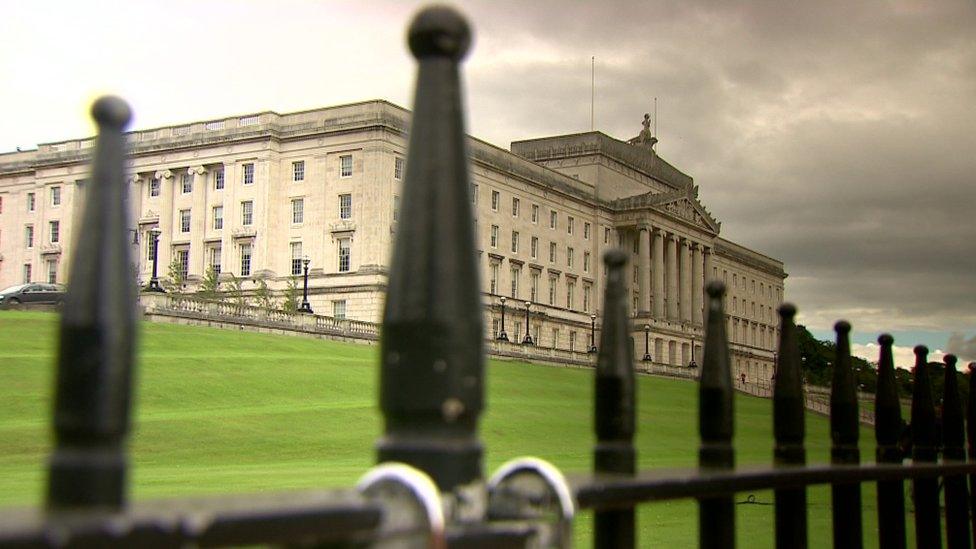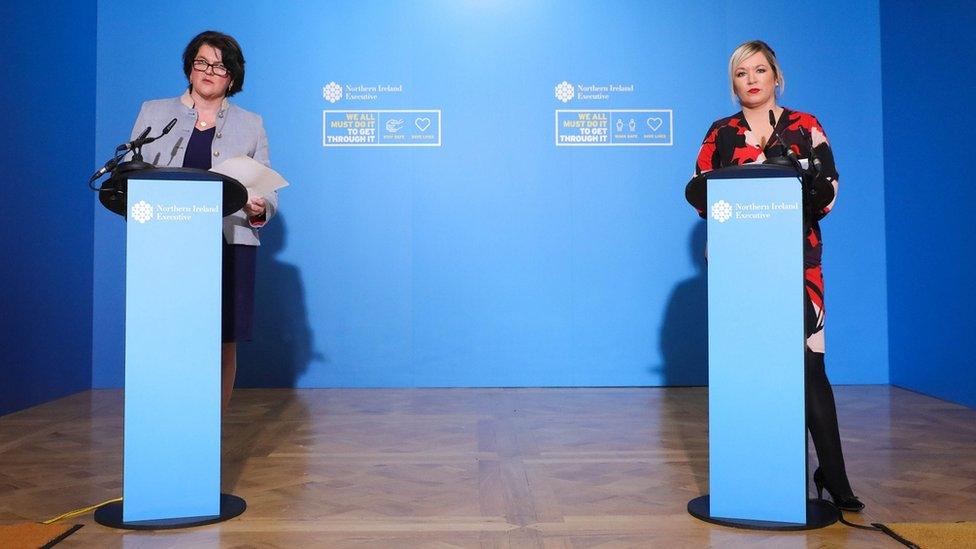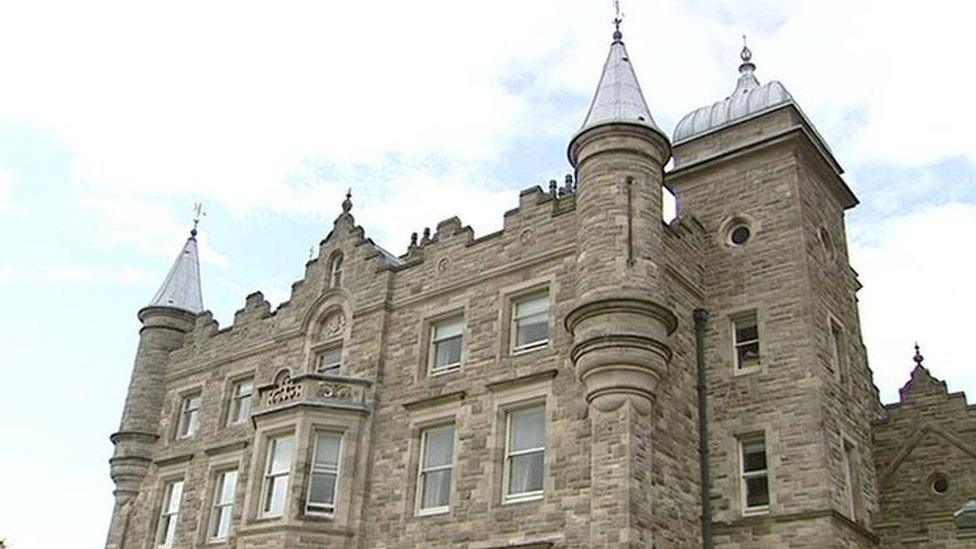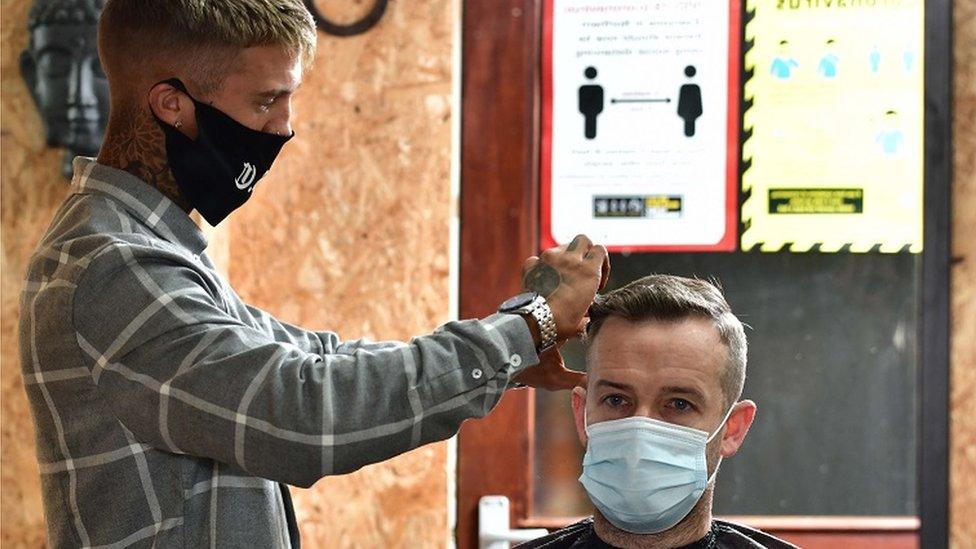Coronavirus: Stormont divisions resurface amid stalemate
- Published

Stormont is not unused to deadlock situations - but this time pressure seems even more intense
Late-night talks resulting in stalemate at Stormont aren't exactly a rare occurrence.
If past experience is anything to go by, usually the longer discussions go on, the more time there is for opposing positions to become entrenched.
History seems to be repeating itself except unlike with previous deadlocks, this time ministers are grappling with the ongoing challenge of a global pandemic.
Both lives and livelihoods are immediately on the line.
Throughout the crisis, the executive has consisted of five political parties in the power-sharing coalition, where reaching consensus has required a delicate balance of competing party interests and conflicting policy decisions.
While tensions at the heart of the executive have been exposed at various times over what to do with certain restrictions, pressures this week have been building to a political crescendo.
Before the executive had even reconvened on Wednesday, representatives from different parties were openly wrangling on the radio airwaves.
The executive office, which is jointly led by the DUP and Sinn Féin, is supposed to work in partnership but there seems to be absolutely no meeting of minds yet.
The DUP, on its own within the executive in wanting restrictions to be relaxed on Friday, went as far as to deploy the cross-community veto mechanism twice within 24 hours to make its point.
Although First Minister Arlene Foster has talked of a need to find "consensus", she has been under pressure from some of her party colleagues not to extend restrictions, and instead allow businesses to reopen fully sooner.
The DUP points to its economy minister's assessment of the four-week circuit breaker, which says it cost the NI economy £400m, external in lost output.

Arlene Foster and Michelle O'Neill's parties are at odds over what to do regarding extending the current restrictions
Sinn Féin insists that the fresh warnings from health officials mean all of the restrictions should be extended for at least another week.
The party faced accusations of "somersaulting" and changing its stance within days on the restrictions - but it maintains it had initially supported a slight reopening - if medical advice deemed it possible - and that the latest advice given to ministers flew in the face of reopening plans.
So after three votes, two vetos and tempers flaring in the past 24 hours - where does that all leave the executive?
Ultimately it's back to square one, with no detailed plan or imminent announcement yet for businesses still waiting on clarity.
Advisers have given the executive their medical advice, but whatever the outcome, it will be a political decision as ministers attempt to balance the scientific evidence with economic and societal harms.
It may be that a possible proposal from Alliance minister Naomi Long, that would fuse Robin Swann's one-week extension proposal with Diane Dodds' plans for partially reopening the hospitality sector, could make progress.
Although it is hard to imagine how the executive could agree to a plan that merges two proposals that have already been rejected separately, some Stormont sources suggest that perhaps allowing the proposal to be brought by Alliance could give other parties some political cover, and defuse the rapidly-building tensions.
Mr Swann had warned his colleagues that the "do nothing" approach - allowing the regulations to expire with no alternative by midnight on Thursday - would be a collective failure of leadership by the executive.
If a compromise deal isn't reached soon it is not clear where things go next, or how much more talking the parties would be prepared to do.
Businesses, not privy to the internal machinations around the virtual executive table, say they just want a decision to be taken and end the uncertainty.
For now, the waiting goes on.
- Published17 June 2021

- Published31 October 2020

- Published6 November 2020

- Published3 November 2020

- Published5 November 2020

- Published29 July 2021

- Published11 January 2021
